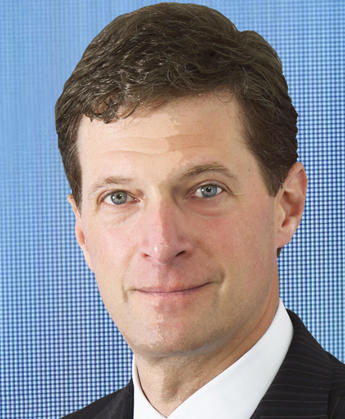When Eastern Consolidated throws its annual summer party at the Westchester home of co-founders Daun Paris and Peter Hauspurg this month, it will be something of an Irish wake. The brokerage lasted 37 years, survived the real estate bust of the late 1980s/early 1990s, the pop of the dot-com bubble in the early 2000s, and the worst economic recession of a lifetime.
But Paris and Hauspurg’s abrupt decision last month to shut down the brokerage can be traced back to a plan they put in place five years ago to expand the firm’s footprint beyond its core investment sales platform, according to current and former employees. The move touched off a culture clash that — by some accounts — pitted veteran brokers against junior canvassers; incurred millions in hard costs; and imperiled a firm that couldn’t withstand a market downturn but also didn’t have the stomach to cut costs or sell.
To understand how a 100-broker firm that was among the top 10 investment-sales shops in the city could suddenly be worth nothing, The Real Deal conducted dozens of interviews with current and former employees, as well as industry insiders. Most spoke on the condition of anonymity because they did not want to criticize the firm publicly.
A recession and a restart

Eric Anton
Since its founding in 1981, Eastern cemented a reputation for producing brokers who thrived in a freewheeling environment. While it competed with institutional firms that relied on a handful of prolific teams to land big assignments, Eastern was different. It hired and cultivated a large group of independent-minded agents, and for the most part, it expected them to produce individually. Aggressive brokers like David Schechtman, Brian Ezratty, Eric Anton, Ron Solarz, and former Extell Development assemblage-lead Dov Hertz, all cut their teeth at the firm.
“It was a high ratio of senior people doing deals,” said former broker Eric Anton, now at Marcus & Millichap. “More senior people, less junior people and less management. [Actually] there was no management. It was just a fact, there was no management. It was eat what you kill, sink or swim, and it was fun.”
Then, in 2008, the real estate market collapsed. Like many commercial brokerages, Eastern struggled to stay afloat. Paris and Hauspurg took personal hits to keep the business running, multiple sources said. In 2010, they sold an estate in Westchester for $9.4 million and a multifamily property in West Harlem for $1.04 million.
“It was depressing. It was really quiet. No one was doing anything,” said Anton.
“[Peter and Daun] tried, they did the best they could.”
As the market gradually recovered, so did Eastern, but several top producers left, starting with the team of Anton and Ron Solarz in 2011, followed by Schechtman and Lipa Lieberman, in 2013. That was a wake-up call for the firm’s leadership.
[Peter and Daun] tried, they did the best they could.
As the firm licked its wounds from departures, Eastern’s leadership began to take notice of structural changes at Massey Knakal Realty Services. In a bid to expand services that would make it more valuable to a buyer, Massey Knakal announced in 2011 that it would branch into retail leasing and capital markets. It proved a smart play, and Cushman & Wakefield bought the firm for a reported $100 million in late 2014.
Multiple sources within the company said Eastern saw Massey Knakal’s shift and began to emulate the rival, although in its own style.
“They saw their colleagues [at Massey Knakal] get $100 million and they positioned themselves to do it,” said Matthew Isaacs, a former broker.
In early 2013, Paris and Hauspurg hired Mark Schnurman, a veteran equity sales manager, to lead a revamped investment sales team. He implemented a new process, hoping to reduce competition between agents within the firm. A year later, Eastern created a capital markets division under the direction of Jonathan Aghravi and a retail division under James Famularo.
Paris, Hauspurg, company CFO Peter Takiff and Schnurman all declined to comment for this story.
What went wrong
Under the new program, Eastern began to hire a small army of junior brokers, often fresh-faced kids straight out of college. Their orders were simple: work the phones, aggressively canvas for leads and send them to the closers upstairs.
Insiders give conflicting accounts of the productivity of the junior agents. Some sources said that the inexperienced agents ultimately sourced about half of the transactions closed in recent years. Others said the leads were weak and it was the traditional contacts from a few senior brokers that kept investment sales afloat.
There were several success stories under the new model, which resembled Massey Knakal’s canvassing system. Agents such as Andrew Sasson and Chad Sinsheimer, who began at the firm as cub canvassers in 2013, rose through the ranks and became managing directors.
It seems odd that after 37 years they couldn’t have either put a management team in place to roll on, or look to sell or merge the business.
A review of 2017 closed investment sales found that most of the $622 million the firm closed was credited to principals, not junior agents. Still, some of those deals could have been sourced by canvassers who were partnered with senior agents to close the deal.
Multiple current and former brokers said the new strategy sparked tensions at the firm. Some were the typical frictions, like junior brokers believing they were shut out of a deal. But others were more cultural, and some senior agents chafed at the new system and Schnurman, the manager who tried to tame the cowboy culture.
What’s not under dispute is that there was a significant amount of overhead and not enough business coming in. Multiple sources said overhead from the additional space (the company expanded to 20,000 square feet at 355 Lexington in 2014), a large marketing budget and the many junior agents and non-productive senior agents, needed to be trimmed. But management balked.
“Over the last few years, they expanded fairly rapidly and got young brokers,” said Sinsheimer, a managing director in the investment sales group. “You can never have enough people looking for deals. The brokers don’t cost anything. The money in administration and marketing and analytics, they cost money. It’s the support staff and facility, and they add that in and another floor of rent.”
Other sources said Eastern carried as many as 40 brokers who hadn’t closed a deal in about two years. It was a lot of dead weight, as nearly every senior investment sales broker had an office on the 11th floor. The junior brokers worked in much smaller cubicles on the 10th floor.
Several sources said the firm also paid high splits for the industry, up to 70 percent splits to high-earning investment sales agents. The high splits kicked in when an agent brought in more than $2 million in revenue, according to one source.
Multiple brokerage executives said a 70 percent split left very little over for profit, in a business that typically yields a margin of 10 to 15 percent.
The firm also did not replace talent that left with seasoned agents, instead betting on younger brokers to grow into the role.
“There was nothing in the middle” to bridge between the new and the experienced agents, one source said.
Dipping toes in the water, but not jumping in
Though Eastern still placed among the top 10 investment-sales firms in TRD‘s February ranking, its closed deal volume was down 60 percent from 2016. And sources said 2018 was already looking bleak, with few reasons to believe it would bounce back quickly. Since 2016, there was much less activity in its under-$30 million sweet spot, insiders said.
Though the investment-sales market has declined across the board, many of Eastern’s chief rivals appear less cost-burdened and nimble enough to adjust to a market slump.
Meridian Capital Group, for example, has a much smaller investment sales team that it launched in 2015. The group shot up past Eastern in the rankings with $928.3 million worth of closed deals last year.
And Massey Knakal co-founder Paul Massey is launching his own firm, which will focus on sales and capital markets in the middle market.

Paul Massey
What still remains unclear – even to many inside the company – is why Paris and Hauspurg decided against trimming costs in order to save the company, or to strike a deal to sell or bring on a financial partner.
“It seems odd that after 37 years they couldn’t have either put a management team in place to roll on, or look to sell or merge the business,” said Timothy King, CEO of Brooklyn-based brokerage firm CPEX Real Estate.
The co-founders said in a joint statement two weeks ago that they gauged opportunities for a potential sale. Other opportunities arose, they said, “but they all came with terms and conditions with which we were not comfortable.”
Sources said the firm had held talks with firms like CBRE, Newmark Knight Frank and others since 2014.
By late 2017, Paris and Hauspurg met with top executives to discuss making cuts, but ultimately decided not to. They believed that making cuts would make the company look weak, especially during an effort to sell the company, insiders said. There was also a fear that brokers might head for the doors, torpedoing the firm’s value.
Early in 2018, Eastern hired investment bank Kimberlite to explore a possible sale, with a push to get a deal over the finish line after Memorial Day, sources said. The firm scheduled meetings for mid-June with companies such as Ackman-Ziff, Meridian Capital and JLL, according to an industry source. (Sources at Ackman-Ziff said no direct talks were ever held.) But those meetings were never held because on June 15, Hauspurg announced the company would close the following month.
In the end, insiders said that Paris and Hauspurg had to make personal sacrifices to keep the company afloat during the Great Recession, and that they didn’t appear willing to go through it again.
“Why they decided to close is anyone’s guess,” said Isaacs. “I firmly believe they could have got something.”
